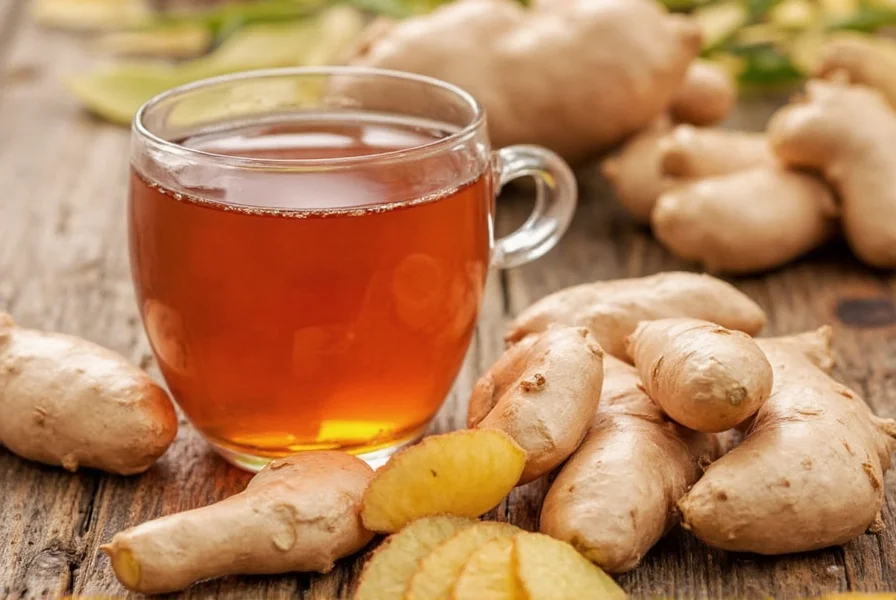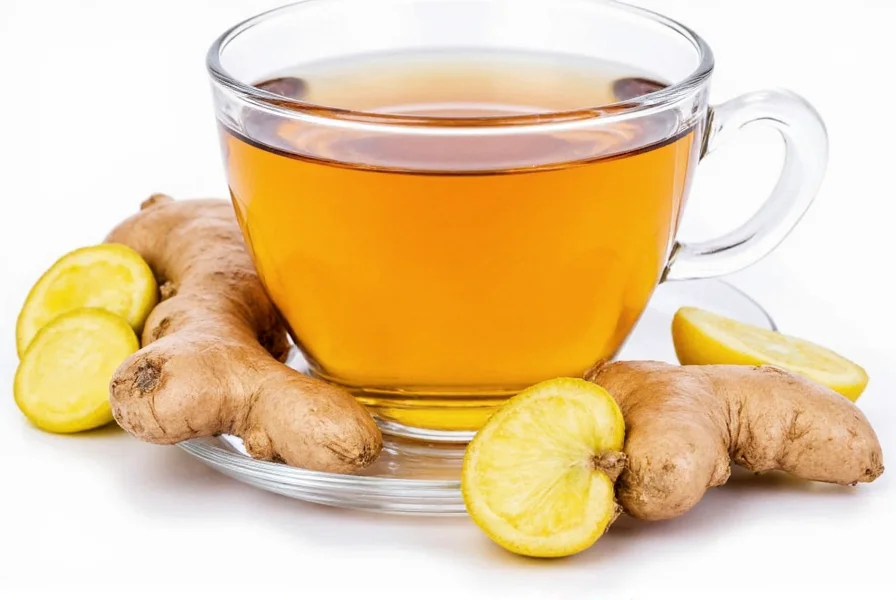Ginger root tea has been used for centuries in traditional medicine systems across Asia and the Middle East. Modern research continues to validate many of these traditional uses while providing evidence-based insights into its mechanisms and effectiveness. This comprehensive guide examines what science actually says about ginger tea's health properties, separating fact from popular claims.
Scientifically Supported Health Benefits of Ginger Root Tea
Multiple clinical studies have investigated ginger's therapeutic properties. The most robust evidence supports ginger's effectiveness for:
Nausea and Digestive Relief
Ginger root tea is particularly effective for various forms of nausea. A comprehensive review published in Nutrition Journal analyzed 12 studies involving over 1,200 participants and concluded that ginger significantly reduces nausea and vomiting in multiple contexts. The active compounds gingerols and shogaols work by:
- Blocking serotonin receptors in the digestive tract
- Accelerating gastric emptying
- Reducing intestinal inflammation
Research shows ginger tea can help with:
- Morning sickness during pregnancy (studies show 1g daily reduces symptoms by 25-30%)
- Postoperative nausea (comparable to conventional anti-nausea medications)
- Chemotherapy-induced nausea
- Travel sickness
Anti-Inflammatory Properties
Ginger contains potent anti-inflammatory compounds that may help reduce pain and stiffness associated with osteoarthritis and other inflammatory conditions. A study in Arthritis followed 247 people with knee osteoarthritis who consumed ginger extract daily. After six weeks, participants reported significantly less pain during movement compared to the placebo group.
| Health Benefit | Scientific Evidence Level | Recommended Daily Amount |
|---|---|---|
| Nausea relief | Strong (multiple RCTs) | 1-1.5g ginger |
| Inflammation reduction | Moderate (several studies) | 2g ginger |
| Digestive improvement | Preliminary (animal & small human studies) | 1-2g ginger |
| Blood sugar regulation | Limited (small studies) | 3g ginger |
How Ginger Root Tea Works: The Science Behind the Benefits
The therapeutic effects of ginger root tea stem primarily from its bioactive compounds, particularly gingerols and shogaols. These compounds work through multiple physiological pathways:
- Gastrointestinal effects: Ginger stimulates digestive enzymes and accelerates gastric emptying, which explains its effectiveness for indigestion and nausea.
- Anti-inflammatory action: Gingerols inhibit the production of inflammatory cytokines and prostaglandins, similar to how non-steroidal anti-inflammatory drugs (NSAIDs) work, but through different pathways.
- Antioxidant properties: Ginger contains powerful antioxidants that help combat oxidative stress, which contributes to chronic disease development.
When you brew ginger root tea, these compounds become water-soluble and bioavailable. The concentration depends on preparation methods, which we'll explore next.
Optimal Preparation Methods for Maximum Health Benefits
How you prepare ginger root tea significantly affects its potency and health benefits. Research shows that:
- Fresh ginger provides higher concentrations of active compounds compared to dried ginger powder
- Longer steeping times (10-15 minutes) extract more beneficial compounds
- Adding lemon or acidic components may increase the solubility of certain compounds
- Heating ginger in water above 80°C (176°F) converts gingerols to shogaols, which are more potent but may have different effects

Potential Side Effects and Important Precautions
While ginger root tea is generally safe for most people when consumed in moderate amounts, certain individuals should exercise caution:
- Blood thinners: Ginger may enhance the effects of medications like warfarin, increasing bleeding risk
- Diabetes medications: Ginger can lower blood sugar, potentially causing hypoglycemia when combined with diabetes drugs
- Gallstones: Ginger may increase bile production, which could be problematic for those with gallstones
- Pregnancy: While generally safe for morning sickness, high doses (over 1g daily) in late pregnancy may increase bleeding risk during delivery
The recommended daily amount for therapeutic benefits ranges from 1-3 grams of fresh ginger, equivalent to about 1-2 cups of strongly brewed tea. Consuming more than 4 grams daily may cause heartburn, diarrhea, or mouth irritation in sensitive individuals.
Ginger Root Tea vs. Other Ginger Forms: What's Most Effective?
Many people wonder whether ginger tea offers different benefits than supplements, fresh ginger, or crystallized ginger. Research suggests:
- Ginger tea provides moderate bioavailability of active compounds compared to other forms
- Supplements offer standardized doses but lack the soothing warmth and ritual of tea
- Fresh ginger contains the highest concentration of gingerols, while dried ginger has more shogaols
- Cooking ginger reduces potency but creates different beneficial compounds
For nausea relief specifically, ginger tea appears equally effective as standardized supplements according to comparative studies. The warmth of the tea may provide additional soothing effects for the digestive system.
Evidence-Based Recommendations for Specific Health Concerns
Based on current research, here's how ginger root tea may help with specific health issues:
Digestive Health
Ginger tea stimulates digestive enzymes and accelerates gastric emptying. A study in European Journal of Gastroenterology & Hepatology found that ginger tea consumed before meals reduced symptoms of functional dyspepsia in 61% of participants.
Muscle Pain and Inflammation
Research published in The Journal of Pain showed that daily consumption of 2 grams of ginger reduced muscle pain from exercise by approximately 25%. The anti-inflammatory effects appear to build with regular consumption.
Nausea Management
For pregnancy-related nausea, studies suggest consuming 1 gram of ginger daily (about 1-2 cups of strong tea) provides significant relief without adverse effects on pregnancy outcomes. For chemotherapy-induced nausea, higher doses under medical supervision may be beneficial.

Practical Tips for Incorporating Ginger Root Tea Into Your Routine
To maximize the health benefits of ginger root tea while minimizing potential side effects:
- Start with small amounts (½ cup of weak tea) to assess tolerance
- Consume before meals for digestive benefits
- Drink in the morning for nausea relief
- Avoid consuming within 2 hours of bedtime as it may cause heartburn
- Combine with lemon to enhance antioxidant absorption
- Use fresh ginger root rather than pre-packaged tea bags when possible
Conclusion: Realistic Expectations for Ginger Root Tea Health Benefits
Ginger root tea offers several evidence-based health benefits, particularly for nausea relief and inflammation reduction. While it's not a miracle cure, incorporating it into a healthy lifestyle can provide meaningful support for digestive health and inflammatory conditions. As with any natural remedy, manage expectations—ginger tea works best as part of a comprehensive approach to health rather than as a standalone solution. Always consult with your healthcare provider before using ginger therapeutically, especially if you have underlying health conditions or take medications.











 浙公网安备
33010002000092号
浙公网安备
33010002000092号 浙B2-20120091-4
浙B2-20120091-4